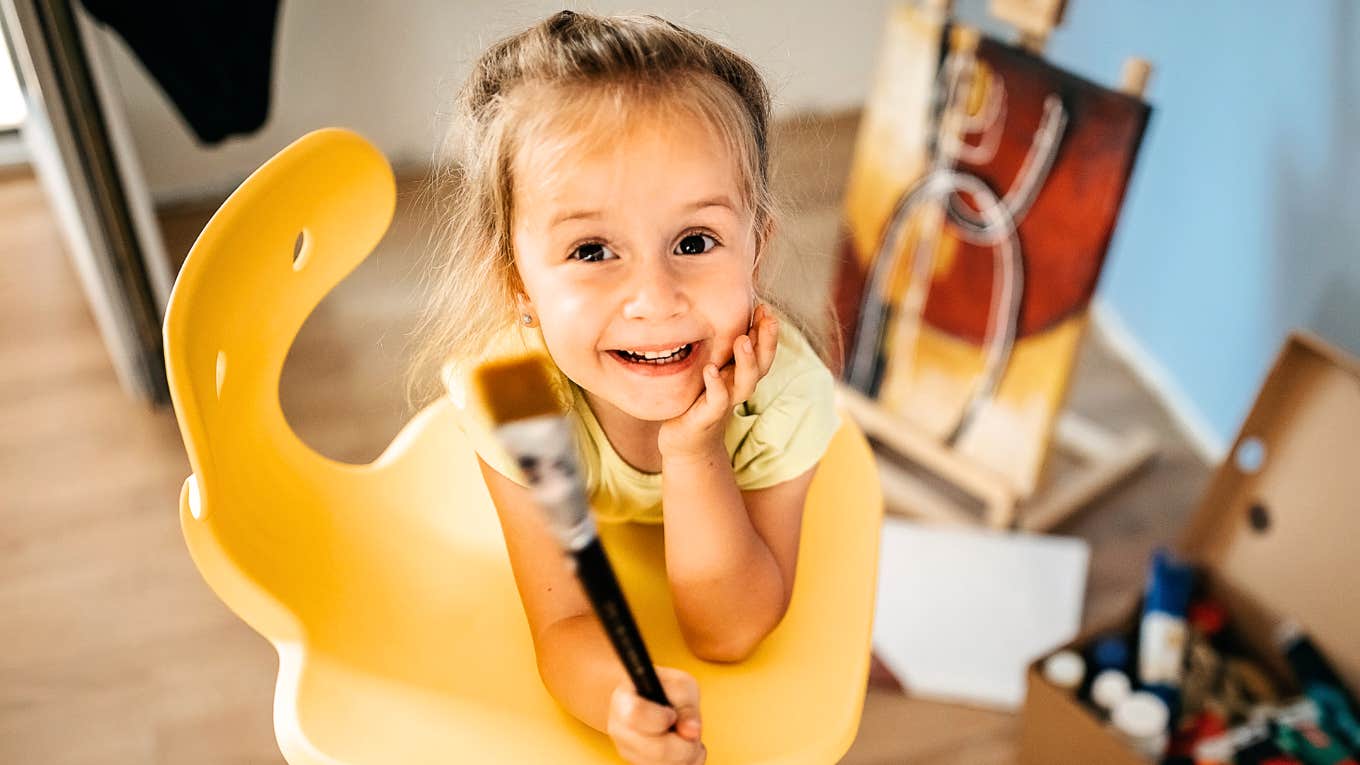If Your Parents Taught You These 3 Skills Growing Up, You're Probably A Very Gifted Adult Now
Kids who grow into gifted adults usually have parents who honed these abilities in them.
 eclipse_images | Canva
eclipse_images | Canva As a child who turned into a gifted adult, you might look back and see how thanks to standardized tests, it was somewhat easy to tell whether a school-age child had above-average aptitude.
Now, curious parents may have a more difficult time determining whether their children are gifted, especially before they reach school age. "Although I suspect my daughter is gifted, I am still waiting [until] she can be tested to call it officially," says Maggie J.
If your parents taught you these skills growing up, you're probably a very gifted adult now:
1. How to learn a language quickly
"My son, not quite 3, recognizes all the letters, has most of the sounds, knows his colors, knows his numbers, counts objects, is starting to read words like 'rattlesnake,' has a huge vocabulary and has incredible logic and reasoning skills," says Laura P. "I'm wondering if he is a gifted child, and if so, do I encourage this or let him be a little kid?"
Many mothers of gifted children say Laura's suspicion that her son is gifted is not off track. According to The International Journal of Pediatrics, one of the first indications of their children's above-average abilities was the speed at which they learned letters and vocabulary.
Deborah C. says her daughter was the poster child for highly gifted kids and had advanced language skills. "Her first word was 'elephant,' right before she turned three months old. She spoke in sentences by six months, and by 18 months, her language skills were that of a four or five-year-old," she says. Additionally, her daughter knew all her colors, shapes, ABCs, numbers, opposites, and left from right before she was 2.
Alicia T. says her son stood out as gifted because at 3 1/2 years old: "He pretty much taught himself how to read phonetically. He also learned the alphabets of at least four other languages and how to count in several of them as well."
2. How to love learning
 PeopleImages.com - Yuri A via Shutterstock
PeopleImages.com - Yuri A via Shutterstock
Gifted children sometimes experience frustration when they're not learning, Alicia T. adds. For example, she says while the rest of her family may happily "zone out" watching a TV show, her gifted son prefers to watch YouTube videos on how to write letters in Hebrew or how to count in Japanese. Because of her experience, she suspects "a gifted child isn't happy unless they are learning something."
A gifted child's inquisitive nature to learn new things often requires constant conversation and attention. Denise M. says it's hard keeping up with her 4-year-old son's interests. Michelle D. calls her son a sponge for knowledge. She says he loves to learn anything and as a result believes gifted children learn in a different style and thus need more enriched activities.
Due to gifted learning in a different style, social awkwardness can be an issue, as explained by family coach Caroline Maguire, "As a gifted adult, you may be frustrated by how awkward you feel at times. As parents of a gifted child, you may be worried about your child’s happiness and future.
Rest assured, however, that the more work and practice put into paying attention to social cues, you or your child can better employ your unique brain wiring to connect and thrive amongst everyone else."
3. How to showcase your talent
Even if your preschooler doesn't exhibit academic gifts, she could still be gifted, say Jami L. and Tegan D. Jami shares that her son didn't learn to read until he entered Kindergarten, but then he excelled by leaps and bounds. In nine months, he was able to read at a first-grade level.
Tegan says her 3-year-old daughter can't read yet, but she is emotionally gifted, sensing when her baby brother is nervous or frustrated and exhibiting empathy toward animals. "Gifts come in all different shapes and sizes," Tegan says, "but the key difference is it's the ability to think beyond and differently to other children of that age."
Nisreen V. also says her 3-year-old son shows signs of being a gifted child — he has an adult vocabulary and asks lots of questions — but she can't compare him to other children his age because he's not yet in school. Once she does start sending him to school, she wonders, will the school help her figure it out?
Whether your preschooler is gifted or not, Hayley M. says you don't need to raise your children any differently. "If they are gifted, then you don't have to encourage it; it's who they are!" she says.
Personal development coach Jessica M. Miller explained, "Parents teach their children that essential experiences are crucial for healthy development. They foster learning through active engagement, build resilience, enhance cognitive skills, and promote a growth mindset.
This ultimately shapes a child's ability to adapt and thrive by providing valuable lessons beyond knowledge acquisition. This approach aligns with theories like Vygotsky's sociocultural theory, which emphasizes the role of social interaction and experience in learning."
Megan W. and Debora C. agree, saying moms should encourage their children's love for learning but not push preschoolers to excel academically. "It is easy to think they need to get out into school ASAP," Megan says, "but three- and four-year-olds need comfort, stability at home, and opportunities to improve their play and socialization skills during the day."
Megan sends her son to preschool part-time to socialize. "I'm aware that he won't learn anything new there," she says, "but being around a group of kids his age and getting used to the 'class' structure is a good idea before formal school."
Praise your child for how hard they work, rather than for being smart, clever, or good, Cathy M. advises. "That will help your preschooler to be more hard-working, rather than give up as soon as things start getting tough," whether your child is gifted or not, she says.
And above all, as a reader who goes by "Flower Girl" says, a parent should respect the qualities her child has. "Just because some children do not have a higher IQ doesn't mean much. We should love our children for who they are."
Patricia-Anne Tom is an award-winning editor, writer, and consultant for business and consumer publications. She also authored a chapter in "The ECO Guide to Careers that Make a Difference: Environmental Work for a Sustainable World."
